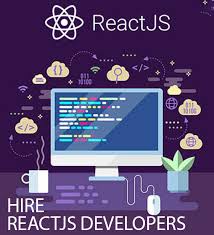In today’s fast-paced digital world, learning digital marketing is no longer just an option it’s almost a necessity. Whether you’re a student, working professional, freelancer, or entrepreneur, knowing how to market online can open doors to countless opportunities.But with so many digital marketing courses available online and offline, it can get overwhelming. How do you choose the best digital marketing course in mohali for your career growth? That’s exactly what we’re going to explore in this blog.By the end of this guide, you’ll have a clear understanding of what to look for and how to pick a course that will truly help you grow professionally.
1. Understand Why You Need a Digital Marketing Course
Before you start searching, it’s important to understand why you want to learn digital marketing.
Some common goals include:
-
Career growth: You want to get promoted or switch to a high-demand role.
-
Freelancing: You want to offer digital marketing services independently.
-
Entrepreneurship: You want to grow your business online.
-
Skill enhancement: You want to stay updated with the latest digital trends.
Once you know your goal, it becomes easier to choose a course that fits your needs. Not all courses are the same some focus on SEO, some on social media, some on paid ads. Understanding your purpose will help you pick the right one.
2. Check the Course Curriculum
A good course should cover the core areas of digital marketing, including:
-
Search Engine Optimization (SEO): Learn how to rank websites on Google and attract organic traffic.
-
Social Media Marketing (SMM): How to promote brands on platforms like Facebook, Instagram, LinkedIn, and TikTok.
-
Content Marketing: Creating blogs, videos, or social posts that engage audiences.
-
Email Marketing: How to build email lists and communicate effectively with customers.
-
Pay-Per-Click Advertising (PPC): Running ads on Google and social media.
-
Analytics and Reporting: Using tools like Google Analytics to measure success.
-
Personal Branding: Building your online presence and professional identity.
Make sure the course you choose provides a comprehensive curriculum covering both theory and practical application. The more practical exercises it has, the better you’ll learn.
3. Look for Industry-Relevant Certifications
Certifications can give you an edge in the job market. Many courses offer recognized certifications after completion, such as:
-
Google Analytics and Google Ads Certifications
-
Facebook Blueprint Certification
-
HubSpot Content Marketing Certification
Certifications show potential employers or clients that you have verified skills and knowledge. When choosing a course, check if it offers certificates from reputable platforms or partners.
4. Practical Exposure Matters
Digital marketing is hands-on by nature. Theory alone won’t help you grow.
The best courses provide:
-
Live projects: Work on real campaigns for businesses.
-
Case studies: Learn from real-world examples.
-
Internships: Some institutes provide opportunities to work with clients.
-
Assignments and exercises: Practice everything you learn.
Practical experience not only builds confidence but also makes your resume stronger.
5. Check the Faculty and Mentors
The quality of teaching can make or break your learning experience.
-
Look for instructors who have real-world experience in digital marketing.
-
Check if they have handled campaigns, worked with clients, or managed online marketing teams.
-
Good mentorship is crucial — mentors should guide you, answer your questions, and provide career advice.
Remember, learning from someone who’s actually worked in the field is more valuable than just watching pre-recorded videos.
6. Online vs Offline Training
Digital marketing courses come in online, offline, and hybrid formats. Here’s what you should know:
-
Online Courses: Flexible, can be taken from anywhere, ideal for working professionals.
-
Offline Courses: Classroom-based, more interaction with peers and mentors, often better for beginners who need guidance.
-
Hybrid Courses: Best of both worlds — online learning plus offline workshops or live sessions.
Choose the mode that fits your schedule, learning style, and location.
7. Placement Support and Career Guidance
If your goal is career growth, look for courses that offer:
-
Placement assistance: Help in finding jobs, interviews, or freelancing opportunities.
-
Resume building: Guidance on making your resume stand out.
-
Mock interviews: Practice sessions to prepare for real interviews.
-
Networking opportunities: Connections with industry professionals and alumni.
Courses that provide career support are a better investment for long-term growth.
8. Reviews and Alumni Success Stories
Before enrolling, check reviews and testimonials from previous students.
-
Did they get jobs after completing the course?
-
Were they able to start freelance work or grow their business?
-
How satisfied were they with the teaching and support?
You can also check platforms like LinkedIn to see if alumni are working in reputable companies or running successful online businesses.
9. Consider the Fee and Value
Digital marketing courses vary in cost. Some are free or very affordable, while advanced courses from reputed institutes can be more expensive.
-
Don’t just go for the cheapest option focus on value, quality, and practical learning.
-
Compare what each course offers: curriculum, certifications, practical exposure, mentorship, and placement support.
A slightly expensive course with good career support is often more beneficial than a cheap course with limited learning.
10. Check for Updated Content
Digital marketing changes rapidly. Strategies that worked last year may not work today.
Ensure that the course you choose:
-
Covers latest trends like AI in marketing, video content, influencer marketing, and social media updates.
-
Updates its modules regularly to reflect current industry practices.
-
Teaches tools and platforms that are actively used by marketers today.
Staying updated is key to career growth in digital marketing.
11. Look for Hands-On Tools and Software Training
Practical tools are an essential part of digital marketing. The best courses teach you to use:
-
SEO tools: SEMrush, Ahrefs, Moz
-
Social media management tools: Hootsuite, Buffer, Sprout Social
-
Email marketing tools: Mailchimp, HubSpot
-
Analytics tools: Google Analytics, Google Tag Manager
Hands-on experience with tools ensures you can manage campaigns effectively in real-world jobs.
12. Networking Opportunities
Some courses provide opportunities to network with professionals, mentors, and peers.
-
Attend webinars, workshops, or live sessions.
-
Join alumni communities or social media groups.
-
Collaborate on projects or internships.
Networking helps you find job leads, clients for freelance work, or even co-found business opportunities.
13. Choose a Course That Fits Your Career Goals
Not all digital marketing courses are the same. Some are better for beginners, others for advanced professionals.
-
If you’re a student or beginner, look for a foundation course that covers basics.
-
If you’re a working professional, choose a specialized course that focuses on SEO, PPC, content marketing, or social media.
-
If you’re an entrepreneur, pick a course that teaches strategy, lead generation, and online advertising.
Choosing a course aligned with your career goals ensures maximum growth.
14. Look for Institutes With Proven Track Records
Some institutes have decades of experience and strong alumni networks, while others are new with limited credibility.
-
Check how long the institute has been offering digital marketing training.
-
Look at their alumni placement records.
-
See if they are recognized by industry leaders or have partnerships with companies.
A reputable institute can open more doors and provide better guidance for your career.
15. Flexibility and Lifetime Access
Digital marketing is constantly evolving, so access to course materials after completion is a huge advantage.
-
Some courses provide lifetime access to video lectures, templates, and resources.
-
This allows you to review lessons anytime, stay updated, and practice new strategies as trends change.
16. Evaluate Support and Mentorship
Support during learning is crucial, especially for online courses.
-
Check if the course offers doubt clearing sessions.
-
Look for mentors or trainers who respond promptly to questions.
-
A supportive learning environment makes your journey smooth and enjoyable.
17. Take a Free Demo or Trial
Before committing, see if the institute offers:
-
Free demo classes
-
Trial lessons
-
Sample materials
A demo helps you understand the teaching style, course structure, and whether it’s a good fit for you.
18. Local vs National Institutes
Depending on your location, you can choose:
-
Local institutes: Easier for offline classes, better networking with nearby professionals, and hands-on sessions.
-
National or international institutes: Usually offer advanced certifications and exposure to global industry practices.
For example, professionals in Chandigarh can explore institutes offering digital marketing training in Chandigarh, which provide local workshops, mentorship, and real-time projects while keeping costs reasonable.
19. Reviews and Comparisons
Once you shortlist a few courses, compare them based on:
-
Curriculum coverage
-
Duration and schedule
-
Fees and payment options
-
Placement support and internships
-
Reviews from students
This careful comparison ensures you pick the course that truly helps your career growth.
20. Final Thoughts
Choosing the best digital marketing course from a reputed best digital marketing institute in mohali is one of the most important decisions for your career.It’s not just about learning tools and techniques — it’s about building skills that help you grow, stay relevant, and open new opportunities.
By focusing on:
-
Course curriculum
-
Practical exposure
-
Certifications
-
Mentorship and support
-
Career guidance you can ensure that the institute you choose provides comprehensive training that truly accelerates your career growth.

